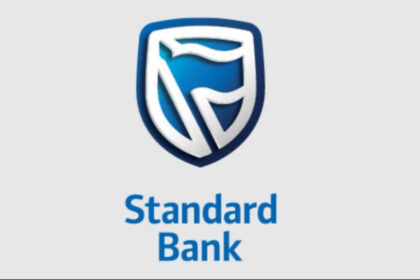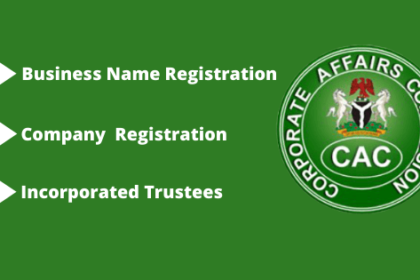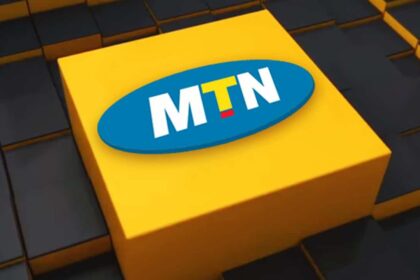NIRSAL Microfinance Bank is a financial institution established by the Central Bank of Nigeria (CBN) to provide loans to households and Micro, Small, and Medium Enterprises (MSMEs). NIRSAL loans are designed to help entrepreneurs and small business owners access the financing they need to start or grow their businesses.
To apply for a NIRSAL loan, applicants must meet certain eligibility criteria, including having a viable business plan and a means of repayment. The loan application process involves three distinct phases, starting with the application for financing, followed by acceptance of the loan offer and other agreements, and finally, disbursement of funds.
Applicants must provide relevant personal information and details about the business to be financed, along with supporting documentation such as bank statements, valid means of identification, and a business plan. The loan amount, interest rate, and length of the loan will depend on the applicant’s creditworthiness and the viability of the business plan. With the right preparation and a solid business plan, applying for a NIRSAL loan can be a straightforward process that can help entrepreneurs and small business owners achieve their goals.
Understanding NIRSAL Loan
NIRSAL (Nigeria Incentive-Based Risk Sharing System for Agricultural Lending) is an initiative of the Central Bank of Nigeria (CBN) designed to de-risk agricultural lending and boost agricultural productivity. The NIRSAL loan scheme is a game-changer for individuals and businesses seeking financial support. The loan offers a wide range of benefits, including low-interest rates, flexible repayment terms, and collateral-free loans.
The NIRSAL loan program is targeted at small and medium-sized enterprises (SMEs) and farmers in Nigeria. The scheme aims to provide financial support to businesses and farmers to help them grow and expand their operations. The loan is available to businesses in all sectors of the economy, including agriculture, manufacturing, and services.
The NIRSAL loan program offers two types of loans: the Agricultural Business Small and Medium Enterprises Investment Scheme (AGSMEIS) and the Targeted Credit Facility (TCF). The AGSMEIS loan is designed for small and medium-sized enterprises in the agricultural sector, while the TCF loan is available to businesses in all sectors of the economy.
The NIRSAL loan program has a simple and straightforward application process. Interested applicants can apply for the loan online through the NIRSAL Microfinance Bank (NMFB) portal. The loan application process involves filling out an online application form and providing the necessary documentation to support the loan application.
In summary, the NIRSAL loan program is a great option for small and medium-sized enterprises and farmers seeking financial support. The loan offers a range of benefits, including low-interest rates, flexible repayment terms, and collateral-free loans. The application process is simple and straightforward, making it easy for interested applicants to apply for the loan online through the NMFB portal.
Eligibility Criteria for NIRSAL Loan
To apply for a NIRSAL loan in Nigeria, there are certain eligibility criteria that must be met. The loan is open to households, micro, small, and medium-sized enterprises (MSMEs) that have been negatively impacted by the pandemic.
Household Eligibility
Households applying for the loan must be able to provide proof that they have been negatively impacted by the pandemic. This may include a reduction in income or loss of employment due to the pandemic.
MSME Eligibility
MSMEs applying for the loan must also provide proof that they have been negatively impacted by the pandemic. This may include a reduction in revenue or loss of business due to the pandemic.
In addition to being negatively impacted by the pandemic, MSMEs must also meet certain requirements to be eligible for the loan. These requirements include:
- A viable business plan
- A valid Bank Verification Number (BVN)
- A valid Tax Identification Number (TIN)
- A valid means of identification (National ID, Driver’s License, or International Passport)
- A proof of business registration with the Corporate Affairs Commission (CAC)
- A proof of business ownership and shareholding structure
- A proof of business address
- A proof of ownership of collateral (if applicable)
It is important to note that meeting the eligibility criteria does not guarantee approval for the loan. The loan application will be assessed based on the borrower’s creditworthiness and ability to repay the loan.
Required Documents for NIRSAL Loan
To apply for a NIRSAL loan in Nigeria, there are certain documents that applicants need to provide. These documents are necessary to verify the applicant’s identity, employment status, and financial history. Here are the required documents for NIRSAL loan:
- Work Identity Card: Applicants will need to provide a valid work identity card that shows their name, photograph, and other relevant details. This card helps to verify the applicant’s employment status and ensures that they are currently employed.
- Employment Letter: An employment letter is also required to apply for a NIRSAL loan. This letter should be written on the company’s letterhead and should include the applicant’s name, job title, salary, and length of employment. It should also be signed by the applicant’s supervisor or HR manager.
- Payment Slip: Applicants will need to provide a recent payment slip that shows their salary and other deductions. This slip helps to verify the applicant’s income and ensures that they have a steady source of income.
- Statement of Account: A statement of account that covers the last six months of transactions is also required. This statement helps to verify the applicant’s financial history and ensures that they have a good credit record.
- Additional Identification Materials: Applicants will need to provide additional identification materials such as a national ID card or international passport. These materials help to verify the applicant’s identity and ensure that they are who they claim to be.
- Utility Bill: A utility bill is also required to apply for a NIRSAL loan. This bill should show the applicant’s name and current address. It helps to verify the applicant’s residency and ensures that they have a stable living situation.
- Two Passport Photographs: Applicants will need to provide two recent passport photographs. These photographs help to verify the applicant’s identity and ensure that they are the same person as in their other documents.
By providing these required documents, applicants can increase their chances of getting approved for a NIRSAL loan.
Steps to Apply for NIRSAL Loan
Registration
To apply for a NIRSAL loan in Nigeria, the first step is to register with the NIRSAL Microfinance Bank (MFB). The registration process involves filling out an application form via the NIRSAL MFB application portal. Applicants can use either a phone or a laptop to fill out the form.
Loan Application
After completing the registration process, applicants can proceed to apply for the NIRSAL loan. To do this, they must log in to their account on the NIRSAL MFB application portal and fill out the loan application form. Applicants must ensure that they meet the eligibility criteria set by NIRSAL, which typically includes farmers, agribusinesses, and other players in the agricultural sector.
Submission of Required Documents
Once the loan application form has been completed, applicants must submit the required documents to the NIRSAL MFB. These documents typically include a letter of employment, pay slip, staff ID card, 6 months statement of bank account, and other valid means of identification like National ID, Drivers’ license, etc. Applicants must also provide a utility bill and a business plan (for businesses only).
Loan Approval
After submitting the required documents, the loan application will be reviewed by NIRSAL. If the application is approved, it will be forwarded to the Central Bank of Nigeria (CBN) for final approval. The CBN will evaluate the loan application and make a decision on whether to approve or reject it.
Loan Disbursement
If the loan application is approved, the loan will be disbursed to the applicant’s account. The length of the loan and the interest rate will depend on the type of loan and the amount borrowed. It is important to note that loan repayment must be made in a timely manner to avoid penalties and additional charges.
In conclusion, applying for a NIRSAL loan in Nigeria involves several steps, including registration, loan application, submission of required documents, loan approval, and loan disbursement. Applicants must ensure that they meet the eligibility criteria set by NIRSAL and provide all the required documents to increase their chances of getting approved for the loan.
Repayment of NIRSAL Loan
Once you have been granted a NIRSAL loan, it is important to ensure that you make timely repayments to avoid penalties and damage to your credit score. Repaying your loan is a straightforward process, and here are the steps to follow:
- Visit any nearby NIRSAL branch to obtain a loan repayment schedule.
- Ensure that your loan account is always funded.
- Confirm that your account number has been previously shared in your mobile number.
- View your offer letter on www.covid19.nmfb.com.ng to keep track of your loan repayment schedule.
- Once your repayment schedule is due, ensure that you make the payment on time.
It is important to note that failure to repay your loan on time will attract a penalty fee of 1% per day, and this will be added to your outstanding balance. Additionally, failure to repay your loan can damage your credit score, making it difficult for you to obtain loans in the future.
Therefore, it is advisable to make timely repayments and avoid defaulting on your loan. If you experience any challenges with your loan repayment, you can visit any NIRSAL branch to seek assistance and guidance on how to resolve the issue.








